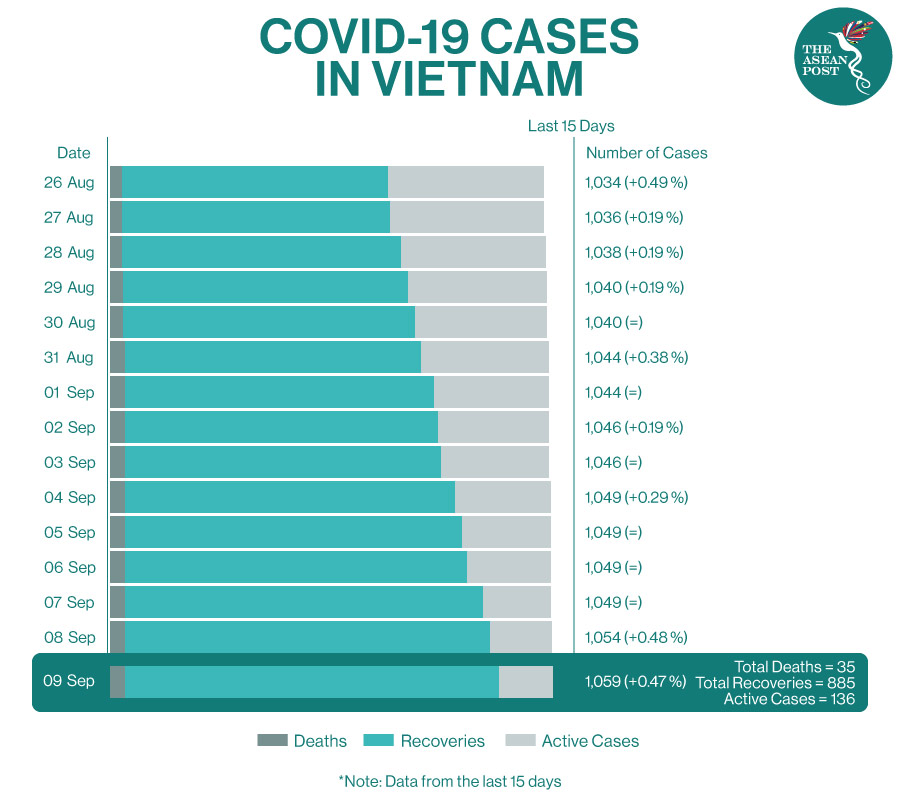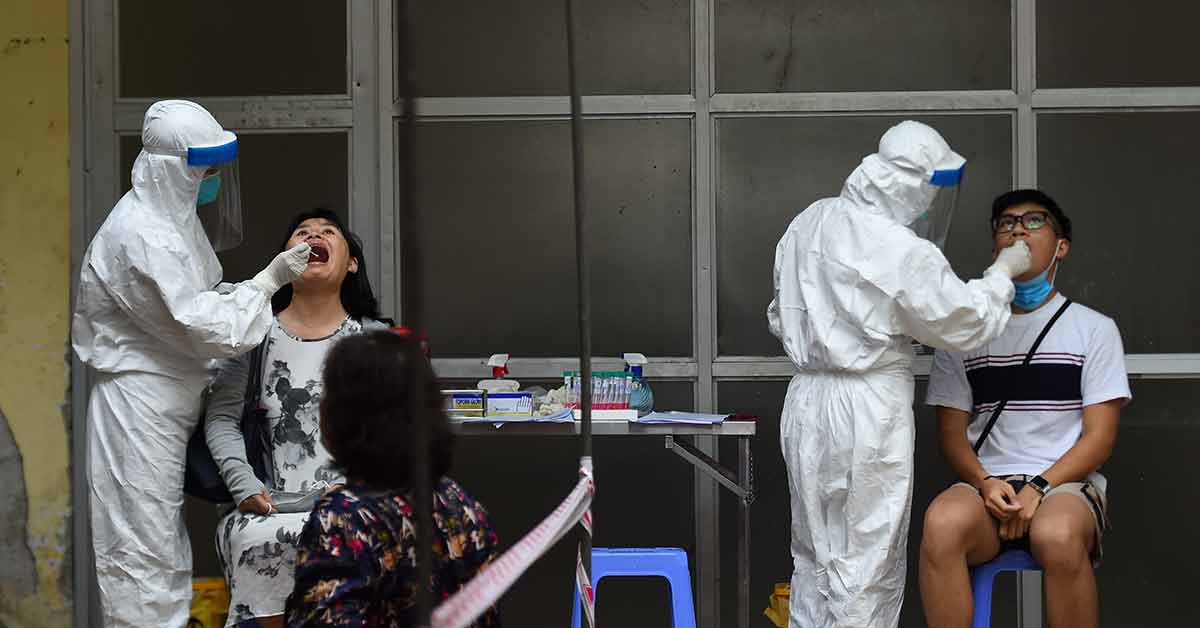ASEAN member state Vietnam has been lauded for its successful handling of the COVID-19 virus outbreak. The country confirmed its first two cases on 23 January and had just over 350 total cases of coronavirus nationwide by the end of June.
Nevertheless, Vietnam has seen a surge in infections in recent months. As of 9 September, 1,059 people in the country have contracted the disease with 35 COVID-19 related fatalities reported. Although the number of cases is relatively low compared to other Southeast Asian countries such as the Philippines and Indonesia – the second wave has concerned many observers and citizens alike.
Good Start
The first two coronavirus infections in Vietnam were a Chinese man and his son who both had travelled from Wuhan, China – where the virus first emerged – to Hanoi. Vietnam was quick to respond to the outbreak and suspended all flights from mainland China, followed by all international flights not long after. Visas and visitors were also stopped to control the spread of the virus.
It was reported that when the virus first broke out of China, Vietnam acted instantly. It closely monitored border areas to prevent the spread of the virus. When China reported its first coronavirus death, Vietnam immediately implemented health checks at airports where all visitors had their body temperatures scanned.
According to the World Economic Forum (WEF), the country of 97 million people relied on four relatively cost-effective solutions to combat the virus. These include strategic testing, contact tracing through apps and effective public communication campaigns. Other than that, the country also imposed a national lockdown in April to further curb the spread of the virus.
But of course, like any other country in the world, its virus measures – although necessary - have hurt livelihoods and local industries. For instance, the country’s tourism sector has been significantly affected by the pandemic.
Vietnam’s economy has also suffered over the course of the outbreak. But the Asian Development Bank (ADB) has projected that Vietnam will be one of the fastest-growing economies in Southeast Asia despite the crisis.
‘Under Control’
On 25 July, almost 100 days after being coronavirus free in terms of local transmission, Danang, a popular tourist destination in Vietnam reported a new case in the community. A few days later, on 31 July, the ASEAN member state confirmed 82 new cases in a day – more than half were reported in Danang. On the same day, Vietnam reported its first death due to the disease.

Unsurprisingly, Vietnam responded swiftly to the new outbreak. The government of Vietnam made the drastic decision to evacuate 80,000 people from Danang. The city conducted large-scale sterilisation procedures to control the spread of COVID-19 and tightened movement controls. Other than that, it was reported that it had set up a 500-bed field hospital to receive coronavirus patients.
“Like in the first wave, Vietnam has responded quickly and forcefully,” said Professor Michael Toole, an epidemiologist and principal research fellow at the Burnet Institute in Melbourne.
Vietnam has experience in combatting pandemics, not just COVID-19. The country suffered from the Severe acute respiratory syndrome (SARS) outbreak in 2003, and was the first country to get it under control. Phuong Pham, a journalist who has written for East Asia Forum and The Diplomat writes in his article titled, ‘Vietnam’s Next Wave of COVID-19 Has Arrived’ that the ASEAN member state’s first-hand experience in dealing with the previous COVID-19 wave may be helpful in tackling the cases in Danang.
The country’s Ministry of Health said last month that the coronavirus outbreak in Danang “is expected to be brought under control” by the end of August.
This appears to be true as it was reported yesterday that for seven days in a row, there have been no new community transmissions of COVID-19 in Vietnam. This is the first time the country has gone a week without any local infections since the second outbreak hit Danang, reported local media.
Kamal Malhotra, the United Nations (UN) Resident Coordinator in Vietnam said that the government of Vietnam is once again demonstrating its serious commitment in containing the virus transmission.
“I am confident that the country will be successful in its efforts to once again successfully contain the virus, once more over the next few weeks,” Malhotra noted in an article published on the UN website.
Related Articles:
